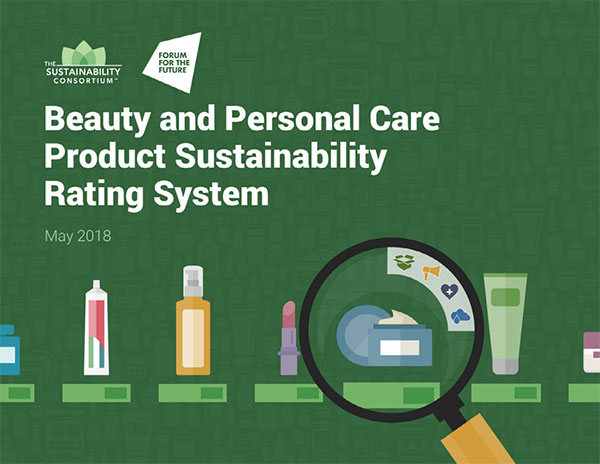News from GreenBiz
Retailers including CVS Health, Sephora, Walgreens, Target and Walmart are embracing The Sustainability Consortium’s new rating system for beauty and personal care products.
It started as a dialogue about “ingredients of concern” in cosmetics and other personal care products, orchestrated by rival retailers Target and Walmart.
Three years later, that ongoing conversation — facilitated by the Sustainability Consortium and Forum for the Future, and representing 18 industry stakeholders — has produced an ambitious series of recommendations that guide principles of sustainability for this class of consumer goods and how these metrics should be disclosed.
The most tangible result of this unusually tight-knit collaboration is an assessment tool published this month that will be used by TSC and the participating retailers — starting later this year and on their own schedules — to harmonize how sustainability metrics are collected and rated for beauty and personal care products.
Five retailers have committed to evolving their rating system (so far): the two big ones that kickstarted the effort as well as CVS Health; Sephora; and Walgreens.
“We believe that, over time, this tool will be valuable in both evaluating the sustainability of the products we sell at CVS Pharmacy and increasing the availability of sustainable products more broadly,” said Eileen Howard Boone, senior vice president of corporate social responsibility and philanthropy at CVS Health.
The group of retailers hopes others will embrace this approach now that it’s public, particularly retailers with substantial e-commerce sales. “We have published the work, we really are going to use 2018 to continue to learn,” said Euan Murray, CEO of TSC. “How is this implemented in practice? What do retailers and brands need? There will be a structured process to main the work and find areas to improve. We’ll also look for anyone who wants to step in and help.”
The participating consumer goods companies likewise plan to embed these principles into their individual sustainability frameworks, so that it’s easier for them to comply with information requests without compromising their individual priorities. Among those that had a say in the recommendations were Burt’s Bees, Colgate, Eastman Chemical, Henkel, Johnson & Johnson, Method, Procter & Gamble, Seventh Generation and Unilever. Fragrance company Firmenich and the Environmental Defense Fund were also part of the project.
While the technical documents developed by the committee are publicly available, companies interested in taking an active role in the beauty and personal care (BPC) project must be approved by the group’s leadership team. There’s also a fee to join. TSC declined to provide details on the cost, but there’s a discount if the company is a broader TSC member.

